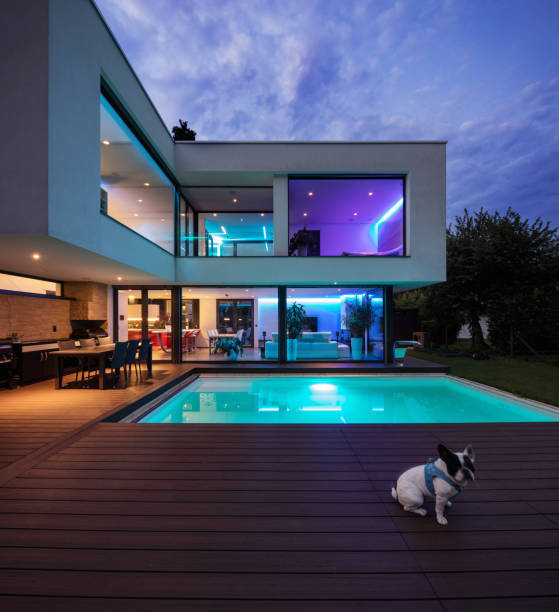Designer Luxury Brands: A Glimpse into the World of Opulence and Elegance
Introduction to Designer Luxury Brands
Designer luxury brands represent the pinnacle of fashion, craftsmanship, and exclusivity. These brands have built their reputations over decades, often centuries, and are synonymous with quality, innovation, and prestige. From haute couture to bespoke accessories, designer luxury brands offer a glimpse into a world where meticulous attention to detail and unparalleled creativity converge to create masterpieces that transcend time.
The Legacy of Excellence
Many designer luxury brands boast a rich heritage that dates back to the 19th or even the 18th century. These brands have withstood the test of time, evolving with changing fashion trends while maintaining their core values of quality and exclusivity. Iconic houses like Chanel, Louis Vuitton, and Hermès have become benchmarks of excellence in the fashion industry. Their stories are intertwined with the history of fashion itself, influencing styles and trends for generations.
Craftsmanship and Artistry
At the heart of every designer luxury brand is a commitment to craftsmanship and artistry. These brands employ master artisans who have honed their skills over years, sometimes even decades. Each piece, whether it’s a handbag, a dress, or a piece of jewelry, is meticulously crafted to perfection. The use of premium materials, intricate detailing, and innovative techniques ensures that every creation is a work of art. This dedication to craftsmanship is what sets designer luxury brands apart from mass-market fashion labels.
Innovation and Creativity
Innovation and creativity are the lifeblood of designer luxury brands. Designers at these esteemed houses are visionaries who constantly push the boundaries of fashion. They experiment with new materials, techniques, and styles, setting trends that others follow. The fashion shows of these brands are highly anticipated events where new collections are unveiled, showcasing the future of fashion. Brands like Gucci, Prada, and Alexander McQueen are known for their bold and avant-garde designs that challenge conventional norms and redefine luxury.
Exclusivity and Prestige
One of the defining characteristics of designer luxury brands is their exclusivity. These brands produce limited quantities of their products, ensuring that owning a piece is a symbol of status and prestige. The high price tags associated with these brands are a reflection of their exclusivity and the unparalleled quality of their products. Luxury brands often have waiting lists for their most coveted items, adding to their allure. The sense of exclusivity is further enhanced by the personalized services offered to clients, including bespoke tailoring and customization options.
The Iconic Collections
Each designer luxury brand has its iconic collections that have become legendary in the fashion world. Chanel’s classic quilted handbag, Hermès’ Birkin and Kelly bags, and Louis Vuitton’s monogrammed luggage are just a few examples of timeless pieces that have achieved cult status. These collections are not only fashion statements but also investments that appreciate in value over time. The enduring appeal of these iconic collections lies in their timeless design, exceptional quality, and the stories they tell.
The Influence of Celebrity Endorsements
Celebrities and designer luxury brands share a symbiotic relationship that has significantly influenced fashion trends. Celebrities endorse these brands by wearing their creations at high-profile events, which in turn boosts the brand’s visibility and desirability. The association with A-list celebrities adds a layer of glamour and aspiration to the brands. Red carpet appearances, fashion magazine covers, and social media endorsements by celebrities play a crucial role in shaping the perception of luxury brands among consumers.
Sustainable Luxury
In recent years, the concept of sustainable luxury has gained prominence in the fashion industry. Designer luxury brands are increasingly adopting sustainable practices to reduce their environmental impact. From using eco-friendly materials to ensuring ethical labor practices, these brands are setting new standards for sustainability in fashion. Brands like Stella McCartney and Gucci are leading the way in integrating sustainability into their business models, proving that luxury and sustainability can coexist.
The Future of Designer Luxury Brands
The future of designer luxury brands lies in their ability to adapt to changing consumer preferences and technological advancements. The rise of digital fashion, virtual reality, and blockchain technology is transforming the way luxury brands operate and engage with their customers. Digital fashion shows, virtual boutiques, and NFTs (non-fungible tokens) are becoming increasingly popular, offering new and immersive experiences for luxury consumers. The ability to innovate while staying true to their heritage will determine the success of designer luxury brands in the future.
Conclusion: The Enduring Allure of Designer Luxury Brands
Designer luxury brands continue to captivate the world with their timeless elegance, unparalleled craftsmanship, and innovative designs. These brands represent more than just fashion; they embody a lifestyle of opulence and sophistication. The stories behind these brands, their commitment to excellence, and their ability to set trends ensure that they remain at the forefront of the fashion industry. As they navigate the challenges and opportunities of the modern world, designer luxury brands will undoubtedly continue to inspire and enchant fashion enthusiasts around the globe.
.jpg)

.jpg)

